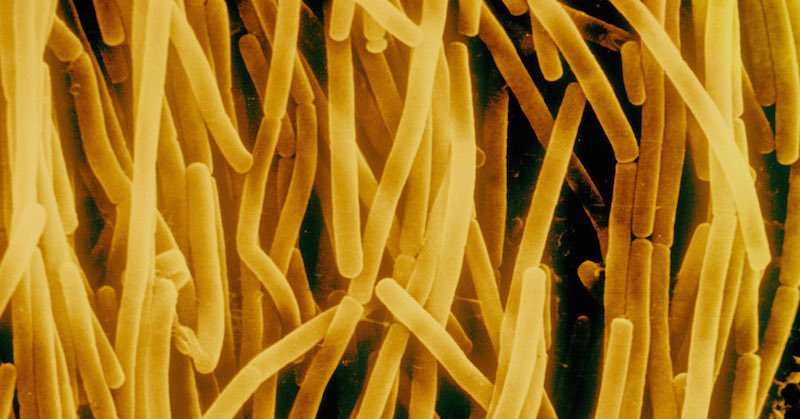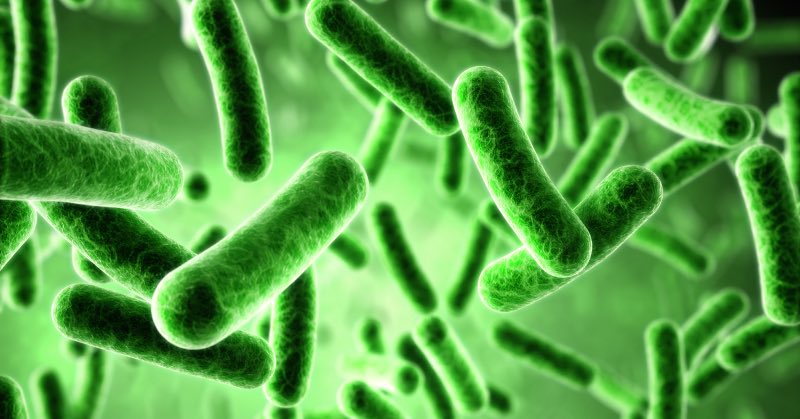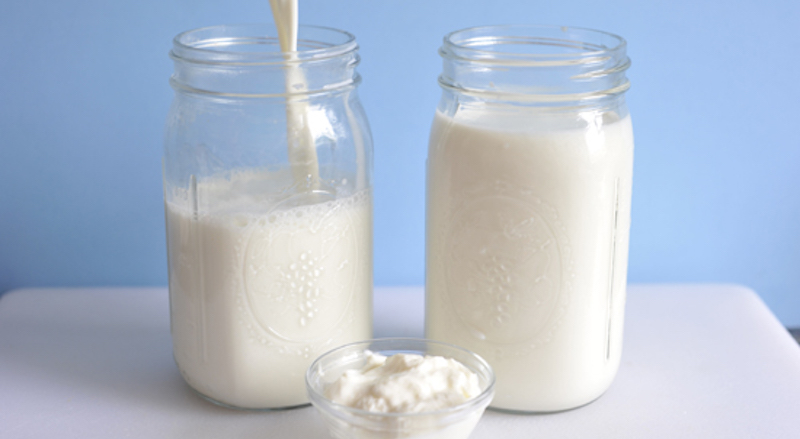This Specific Kind Of Stomach Bacteria Could Be The Cause Of Your Weight Gain
Last updated on
Your body is teeming with bacteria, fungi, viruses, and other microbes that together make up your microbial inner ecosystem, or microflora. Your body actually contains about 100 trillion cells, but amazingly only one in 10 is “human.” The others are made up of bacteria and other microorganisms.
As reported by Quartz:1
“Bacterial cells alone outnumber our own by a factor of 20. No one has estimated the number of viruses, but we expect between ten and a hundred times more than the bacteria. In the body, microbial genes outnumber human genes by a factor of 200.”
You may recall the Human Genome Project, which was launched in 1990 and completed in 2003.2 The mission was to map out all human genes and their interactions, which would then serve as the basis for curing virtually any disease.
Unfortunately, not only did they realize the human body consists of far fewer genes than previously believed, they also discovered that these genes do not operate as previously predicted. Part of the problem is that we are not simply a product of our human cells – we’re a product of our microbiome as well.
Your genes, in fact, can be influenced by the bacteria and other microbes in your body, so by studying the microbial makeup of any population, you can actually gain much insight into its health. This is just what one group of researchers set out to do, using easily one of the best sources of human microbes around… poop.
These Specific Stomach Bacteria Might Be Making You Fat
Research has shown that obese individuals had about 20 percent more of a family of bacteria known as firmicutes, and almost 90 percent less of a bacteria called bacteroidetes than lean people.6

Firmicutes help your body to extract calories from complex sugars and deposit those calories in fat. When these microbes were transplanted into normal-weight mice, those mice started to gain twice as much fat.
This is one explanation for how the microflora in your gut may affect your weight. A 2011 study also found that daily intake of a specific form of lactic acid bacteria could help prevent obesity and reduce low-level inflammation.7
In this study, rats given the bacterium while in utero through adulthood put on significantly less weight than the control group, even though both groups of rats ate a similar high-calorie diet.

They also had lower levels of minor inflammation, which has been associated with obesity. Meanwhile, obese people were able to reduce their abdominal fat by nearly 5 percent and their subcutaneous fat by over 3 percent just by drinking a probiotic-rich fermented milk beverage for 12 weeks.8
Given that the control group experienced no significant fat reductions at all during the study period, this is strong evidence that nourishing your microbial community is essential.
Preliminary research from the Netherlands has even revealed that transplanting fecal matter from healthy thin people into obese people with metabolic syndrome led to an improvement in insulin sensitivity.9
Is Your Microbiome Its Own Organ?
Researchers are increasingly starting to recognize gut microbiota as one of your unappreciated “organs.”10 It may be even more apt to view your body as a “super organism” composed of symbiotic microorganisms.
Yet, research suggests that many people are deficient in gut bacteria, making it a very important consideration if you’re not feeling in optimal shape, physically or psychologically. In one study, one-quarter of the participants were found to have 40 percent fewer gut bacteria than the average needed for good health.11 Obese participants were particularly at risk.
What might it mean for your health if you’re lacking in bacteria? The National Institutes of Health cites research showing that “variations in the composition of microbial communities may contribute to chronic health conditions, including diabetes, asthma, obesity, and digestive disorders.”
Gut bacteria have also been found to influence the processing and utilization of dietary nutrients,12 and they help protect against food borne disease.13 Bacteria have also been identified as major players in the distribution of your body fat, metabolism, and the regulation of your mood and memory.
Mounting research actually shows that problems in your gut can directly impact your mental health, leading to issues like anxiety and depression. They also help educate your immune cells—telling them which pathogens to fight off and which ones to leave alone.
Gut microbiota is also known to affect inflammation and metabolism, both of which are hallmarks of cancer. In fact, researchers have already linked certain microbes to specific cancers, such as:
- H.pylori in gastric cancer. (The International Agency for Research on Cancer defines this microbe as a carcinogen14) Interestingly, H.pylori has also been linked to a reduced risk of esophageal adenocarcinoma, demonstrating the complexity involved, and the organ-specific effects microbes can have when it comes to their impact on cancer
- Hepatitis C virus (HCV) in hepatocellular carcinoma
- Chronic Salmonella enterica infection in gallbladder cancer
- Haemophilus influenza and Candida albicans in lower respiratory tract tumors
Optimizing Your Gut Flora for Optimal Health
All of this information should really drive home the point that optimizing your gut flora—living in harmony with your microbiome instead of assaulting it—is of critical importance for disease prevention. Reseeding your gut with beneficial bacteria is essential for maintaining proper balance here. In light of this, here are my recommendations for optimizing your gut bacteria.
Fermented Foods
Fermented foods are the best route to optimal digestive health, as long as you eat the traditionally made, unpasteurized versions. Healthy choices include lassi (an Indian yoghurt drink, traditionally enjoyed before dinner), fermented grass-fed organic milk such as kefir, various pickled fermentations of cabbage, turnips, eggplant, cucumbers, onions, squash, and carrots, and natto (fermented soy).

Fermented vegetables are an excellent way to supply beneficial bacteria back into our gut. As an added bonus, they can also be a great source of vitamin K2 if you ferment your own using the proper starter culture.
We had samples of high-quality, fermented organic vegetables made with our specific starter culture tested, and a typical serving (about two to three ounces) contained not only 10 trillion beneficial bacteria, but it also had 500 mcg of vitamin K2, which we now know is a vital co-nutrient to both vitamin D and calcium.
Most high-quality probiotic supplements will only supply you with a fraction of the beneficial bacteria found in such homemade fermented veggies, so it’s your most economical route to optimal gut health as well.
Probiotic Supplement
Although I’m not a major proponent of taking many supplements (as I believe the majority of your nutrients need to come from food), probiotic supplements are an exception, and important, if you don’t eat fermented foods on a regular basis.
BUY PROBIOTICS SUPPLEMENT:
In addition to knowing what to add to your diet and lifestyle, it’s equally important to know what to avoid, and these include:
- Antibiotics, unless absolutely necessary (and when you do, make sure to reseed your gut with fermented foods and/or a probiotic supplement).
- Conventionally-raised meats and other animal products, as CAFO animals are routinely fed low-dose antibiotics, plus genetically engineered grains, which have also been implicated in the destruction of gut flora.
- Processed foods (as the excessive sugars, along with otherwise “dead” nutrients, feed pathogenic bacteria).
- Chlorinated and/or fluoridated water.
- Antibacterial soap.
- Agricultural chemicals, glyphosate (Roundup) in particular.
This article was originally published on Mercola.com. It is republished here with permission.
Some of the links I post on this site are affiliate links. If you go through them to make a purchase, I will earn a small commission (at no additional cost to you). However, note that I’m recommending these products because of their quality and that I have good experience using them, not because of the commission to be made.








































 JOIN OVER
JOIN OVER
Comments